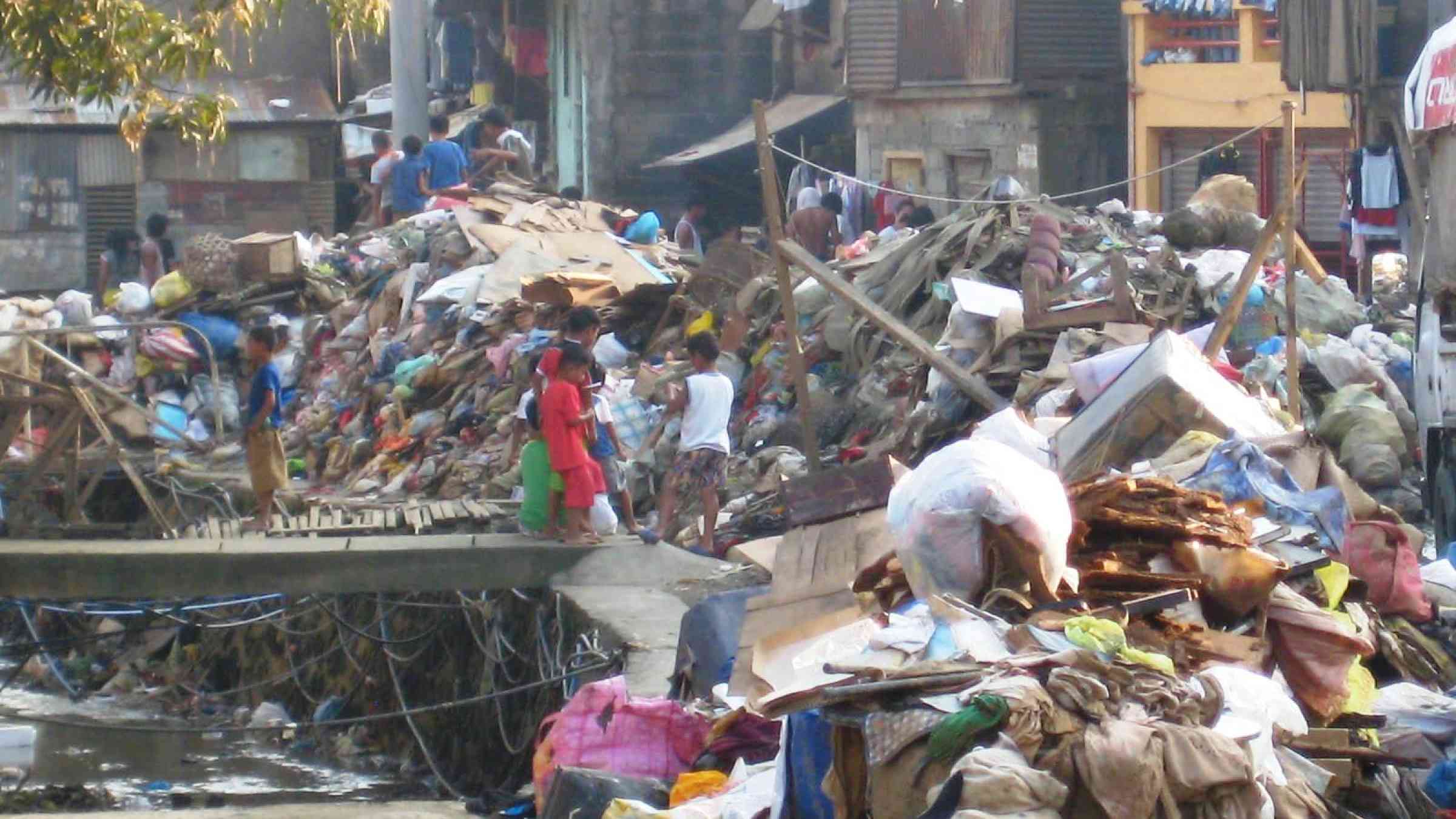Philippine Association for Disaster Waste Management
Explore further
As part of the outputs of the disaster waste management capacity development project, the Philippine Association for Disaster Waste Management (PADWM) is established as a non-profit organization that will be registered with the Securities and Exchange Commission (SEC). The main aim of the organization will be to promote and support disaster waste management by local governments in the Philippines.
In recent years there had been several strong typhoons that caused heavy destruction in Asia and the Pacific, such as Typhoon Haiyan in 2013, which affected the Philippines, Vietnam, Mainland China, and Taiwan; Cyclone Winston in 2016, which affected Fiji and other South Pacific nations; and Typhoon Mangkhut in 2018, which affected the Philippines, Taiwan, Hong Kong, Macau, and Mainland China.
Strong winds from the typhoon tore roofs, windows, doors, and walls off houses; broke trees and other vegetation; and littered wooden, metallic, plastic, and glass debris and waste across a large area. In some cases, hazardous materials, including hospital and industrial wastes, were also among the scattered wastes that needed to be collected and properly treated. Typhoons often result to flooding that make post-disaster waste management even more complicated.
Wastes can pose a serious threat to human health and safety. It is therefore necessary for coastal cities frequently affected by typhoons to have adequate capacity for post-disaster waste management. This project will contribute to this end via the provision of appropriate knowledge and training to government and non-government stakeholders. This project is being implemented in Lautoka City, Fiji and Makati City, Philippines with the support of five prominent universities.
This project is generously funded by the Asia-Pacific Network for Global Change Research (APN), with additional financial support from the Institute for Disaster Management and Reconstruction (IDMR), a joint institute between Sichuan University (SCU) and Hong Kong Polytechnic University (PolyU).
As part of the outputs of the disaster waste management capacity development project, the Philippine Association for Disaster Waste Management (PADWM) is established as a non-profit organization that will be registered with the Securities and Exchange Commission (SEC). The main aim of the organization will be to promote and support disaster waste management by local governments in the Philippines.
In recent years there had been several strong typhoons that caused heavy destruction in Asia and the Pacific, such as Typhoon Haiyan in 2013, which affected the Philippines, Vietnam, Mainland China, and Taiwan; Cyclone Winston in 2016, which affected Fiji and other South Pacific nations; and Typhoon Mangkhut in 2018, which affected the Philippines, Taiwan, Hong Kong, Macau, and Mainland China.
Strong winds from the typhoon tore roofs, windows, doors, and walls off houses; broke trees and other vegetation; and littered wooden, metallic, plastic, and glass debris and waste across a large area. In some cases, hazardous materials, including hospital and industrial wastes, were also among the scattered wastes that needed to be collected and properly treated. Typhoons often result to flooding that make post-disaster waste management even more complicated.
Wastes can pose a serious threat to human health and safety. It is therefore necessary for coastal cities frequently affected by typhoons to have adequate capacity for post-disaster waste management. This project will contribute to this end via the provision of appropriate knowledge and training to government and non-government stakeholders. This project is being implemented in Lautoka City, Fiji and Makati City, Philippines with the support of five prominent universities.
This project is generously funded by the Asia-Pacific Network for Global Change Research (APN), with additional financial support from the Institute for Disaster Management and Reconstruction (IDMR), a joint institute between Sichuan University (SCU) and Hong Kong Polytechnic University (PolyU).
Forum on Access to Science Advice on Disaster Waste Management for Local Government Officials in the Philippines
Makati City Hall and via Webex, July 20, 2023 (Thursday), 10:00 – 12:30 Philippine time
One critical aspect of disaster management is the proper management of disaster waste. Scientific knowledge and expertise play a vital role in formulating effective waste management strategies to mitigate the public health and environmental risks associated with disaster waste. Local government officials in the Philippines are at the forefront of disaster response and recovery efforts. However, accessing accurate and timely science advice related to disaster waste management can be challenging. This forum aims to address this issue by bringing together stakeholders to discuss ways to enhance access to science advice for local government officials in the Philippines, specifically in the context of disaster waste management.
Enhancing Disaster Waste Management: Business Continuity Management (BCM) Seminar for Local Government Officials and MSWM Service Providers
Makati City Hall and via Webex, July 20, 2023 (Thursday), 14:00 – 16:30 Philippine time
Disasters pose significant challenges to the effective management of municipal solid waste in the Philippines. Disruptions caused by disasters can lead to increased waste generation, inadequate waste collection and disposal systems, and environmental and public health risks. To mitigate these challenges, it is crucial for local government officials and municipal solid waste management (MSWM) service providers to have effective strategies in place to ensure the continuity of waste management operations during and after disasters. Business Continuity Management (BCM) provides a framework for identifying potential risks, developing strategies to minimize disruptions, and ensuring the swift recovery of essential services. This seminar aims to introduce and promote the application of BCM principles and practices among local government officials and MSWM service providers in the Philippines, specifically in the context of disaster waste management.
Voluntary Commitments
The Sendai Framework Commitments (SFVC) online platform serves to incentivize stakeholders to inform the public about their work, to provide a vehicle for sharing commitments and initiatives and for motivation toward the implementation of the Sendai Framework. In turn, UNDRR can monitor and take stock of the progress and impact.
Philippine Association for Disaster Waste Management is involved in the following commitments:
